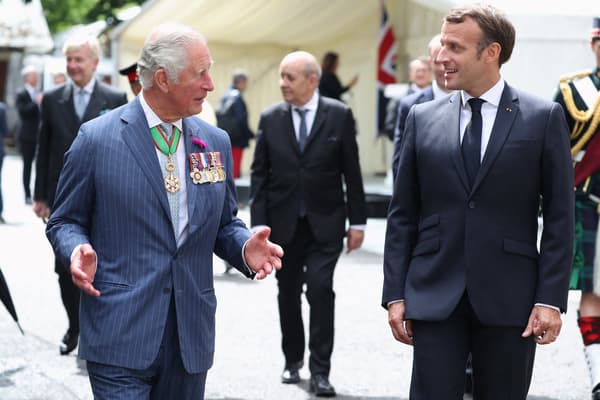On Wednesdays, Thursdays and Fridays, the days of King Charles’ state visit to France, there will be a lot of talk about Franco-British friendship. During these three days, the new sovereign, who will succeed his mother, Queen Elizabeth II, in September 2022, will walk along the Champs-Elysées, give a speech in the Senate, talk about the climate with Emmanuel Macron at the Elysée, have dinner in Versailles… He will also talk about sport in Saint-Denis and the environment in Bordeaux. A program that is both busy and rich in symbols.
But if King Charles is head of state, his role is only symbolic. What purpose can his coming serve? “This visit primarily serves the interests and even essentially the diplomatic interests of Great Britain,” underlines historian Philippe Chassaigne, guest of the BFMTV Royal Podcast.
Like his mother, Carlos does not choose the countries to which he should go on an official visit, says the specialist in British history, author ofEngland history (Flammarion).
Francophilia and ecological issues
Carlos would make his first state visit to France and then to Germany. He finally had to cancel his visit to Paris in March, due to social movements linked to pension reform.
“These first two visits to France and Germany were intended, in the view of the British government, to highlight the fact that, although Britain has severed its institutional links with the European Union, it is not moving away from the European continent and wishes to continue maintaining good relations with the two countries that are the engine of Europe”, analyzes Philippe Chassaigne.
The king’s visit should also allow us to celebrate Franco-British friendship, as London and Paris underlined on September 6, when the main lines of Charles’ program in France were announced.
“The state visit will celebrate Britain’s relationship with France, highlighting our shared history, culture and values,” said the king’s private secretary, Chris Fitzgerald.
Although he did not choose his destiny, King Charles was a very Francophile sovereign. He speaks French very well, as does Queen Elizabeth who spoke almost without an accent. Charles made more than 30 official visits to France when he was Prince of Wales and therefore knows the country well.

Its program, although it includes some obligatory passages such as the tomb of the Unknown Soldier or the state dinner at Versailles, also reflects the interests and personality of the king.
His trip to Bordeaux, by train, to discover an experimental forest after the fires of 2022, but also his visit to an organic vineyard, Château Smith Haut Lafitte, grand cru of Pessac-Léognan, thus attest to his ecological awareness.
“It’s something he said very early, in the 1970s,” recalls Philippe Chassaigne. “It’s also a way of showing that it’s not just England that is interested in ecological issues.”
Limited room for maneuver
Questions that the king may also ask when addressing deputies and senators in the Senate. However, the sovereign’s room for maneuver is very limited, the historian emphasizes. And if your speech in the Bundestag Before the German parliamentarians he was described as very political – in particular he declared that the Russian invasion of Ukraine “threatens the security of Europe” – he had been a target of the British government.
“The sovereign is not going to make a speech that has not been reread and validated by the Minister of Foreign Affairs and the Prime Minister,” assures Philippe Chassaigne.
The king, however, managed to imprint his style on his speeches. Perhaps, the historian suggests, because he was accustomed to expressing his opinion before acceding to the throne. A loquacious and interventionist Prince of Wales, he “devoted himself to sending memoranda, notes to different ministers indicating what he thought was good for the country.”
Today he is a cautious king, who no longer gives his opinion, but who embodies his speeches more than the queen.
Source: BFM TV


